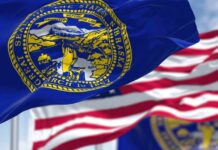
An Oakland coffee shop faces a federal lawsuit for allegedly refusing service to Jewish customers based on their religion, marking a significant case that tests the boundaries between anti-discrimination laws and free speech protections.
At a Glance
- The Department of Justice has sued Jerusalem Coffee House in Oakland for allegedly refusing service to Jewish customers wearing religious symbols
- Two Jewish men reported being denied service and harassed for wearing Star of David baseball caps
- The coffee shop features pro-Palestinian imagery and controversial drink names like “Iced In Tea Fada” and “Sweet Sinwar”
- The lawsuit raises concerns about balancing anti-discrimination enforcement with First Amendment protections
Federal Discrimination Lawsuit Filed
The Department of Justice has taken legal action against Jerusalem Coffee House in Oakland, California, accusing the establishment of violating the Civil Rights Act by discriminating against Jewish customers. The lawsuit names owner Fathi Abdulrahim Harara and Native Grounds LLC as defendants, alleging they refused service to customers based on their Jewish identity. According to court documents, the coffee shop, which celebrates Palestinian heritage, has engaged in a pattern of discrimination that included identifying and targeting customers wearing Jewish religious symbols such as the Star of David.
Attorney General Pam Bondi initiated the legal action following multiple reported incidents. The DOJ emphasized that businesses open to the public cannot legally refuse service to customers based on their religion. The lawsuit is part of a broader effort by the Justice Department to combat rising anti-Semitism across the country, including a task force specifically focused on investigating anti-Semitic incidents at colleges and universities.
A federal lawsuit has been filed against the Oakland coffee shop caught on video last year refusing service to Jewish customers, one of whom was targeted simply for wearing a hat featuring a Star of David. Jerusalem Coffee House is now facing a civil rights lawsuit from the… pic.twitter.com/ghY6S9rVRV
— JCRC Bay Area (@SFJCRC) June 10, 2025
Alleged Incidents of Discrimination
The federal complaint details multiple disturbing encounters at the coffee shop. In one incident, Michael Radice, wearing a Star of David baseball cap, was allegedly denied service, followed outside, and verbally harassed. According to the lawsuit, an employee confronted Radice saying, “You’re the guy with the hat. You’re the Jew. You’re the Zionist,” before accusing him of being complicit in Israel’s military actions. The confrontation reportedly escalated with the employee shouting at Radice as he attempted to leave the area.
In another incident, Jonathan Hirsch and his son were allegedly asked to leave the shop after being identified as Jewish. The lawsuit states that when Hirsch asked why they were being ejected, the owner threatened to call the police. These events occurred in a setting where the shop’s environment prominently featured symbols associated with Palestinian solidarity, including inverted red triangles painted on the exterior, which have become recognized as pro-Palestinian symbols.
The U.S. Department of Justice filed a civil rights lawsuit against a coffee shop in Oakland, accusing its employees of denying service to Jewish people. https://t.co/ydsD6J1PwR
— San Francisco Chronicle (@sfchronicle) June 10, 2025
Controversial Menu and Free Speech Concerns
The coffee shop drew additional attention for marking the anniversary of a Hamas attack with a controversial menu. According to the DOJ complaint, the establishment introduced drinks with names like “Iced In Tea Fada” (referencing the Palestinian uprising) and “Sweet Sinwar” (named after a Hamas leader). While these names and the shop’s pro-Palestinian imagery are considered protected speech, the Justice Department clarified that the lawsuit focuses on the alleged discrimination in service, not the political expression.
Legal experts note that the case highlights the delicate balance between enforcing anti-discrimination laws and protecting First Amendment rights. The DOJ emphasized that while businesses are free to express political viewpoints through signage, names, and themes, they cannot legally refuse service to customers based on their religion, race, or other protected characteristics. The lawsuit seeks both monetary damages for the affected customers and an injunction prohibiting future discrimination.
As the case proceeds through the courts, it represents a significant test of how anti-discrimination laws apply in politically charged contexts. The outcome could have far-reaching implications for how businesses balance expressing political viewpoints while fulfilling their legal obligation to serve all members of the public regardless of religious identity.

























